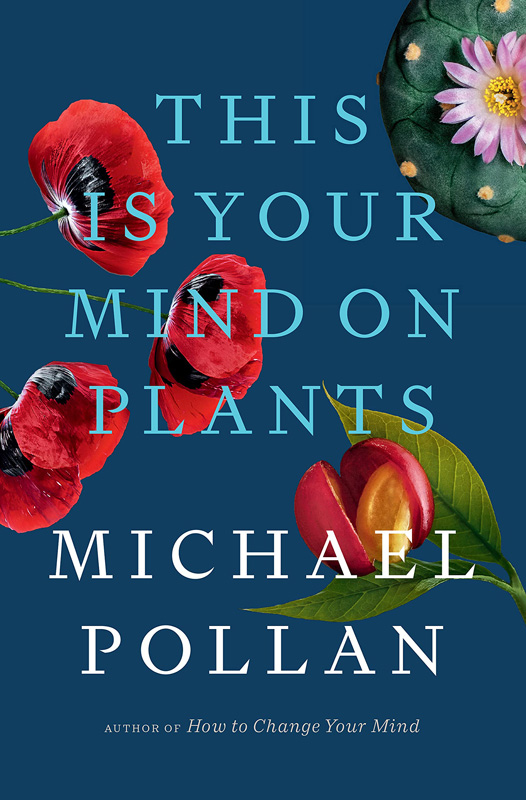Acclaimed author and essayist Michael Pollan has, in the past, written extensively about food — focusing on the nutrition, history, and the facts and myths surrounding the things we ingest. His six bestselling books, including The Omnivore’s Dilemma and Food Rules, have become scripture of sorts for those interested in the background, chemistry, and economic impact of the things that nourish us.
In 2018, Pollan published How to Change Your Mind, which explored the use of psychedelic substances, and did some field work in the process. Now, with his latest book, This Is Your Mind on Plants, Pollan looks at how three naturally occurring plant chemicals — opium, caffeine, and mescaline, have impacted society and individuals for thousands of years. With characteristic wit, insight, and humor, Pollan takes us on a trip — three trips really — through the worlds of a narcotic (opium), a stimulant (caffeine), and a psychedelic (mescaline).
What sets This Is Your Mind on Plants apart from a purely scientific and academic examination of drugs is the author’s willingness to make himself a human guinea pig by experimenting with the substances he writes about (in the case of caffeine, Pollan abstains for a period of time in order to document both the experience of withdrawal and the effects of the stimulant on a non-caffeine-reliant individual). Pollan’s description of his variously altered states, written with wit, brutal honesty, and more than a bit of poetic inspiration, add him to the list of writers like Huxley, De Quincey, and Hunter S. Thompson who have undertaken the challenge of describing a unique state of mind, and Pollan proves himself up to the task.
The chapter on opium is perhaps the most fascinating in its examination of the war on drugs, and how one innocent, virtually unknown writer’s life was upended by a campaign to convict him for simply possessing some dried poppy pods purchased at a florist shop. The opium section of the book is worth the purchase price alone. But read on if you’ve ever been curious about what your daily cup of coffee or tea is really doing to your brain, and why caffeine took a hold on the world in the way it did.
















